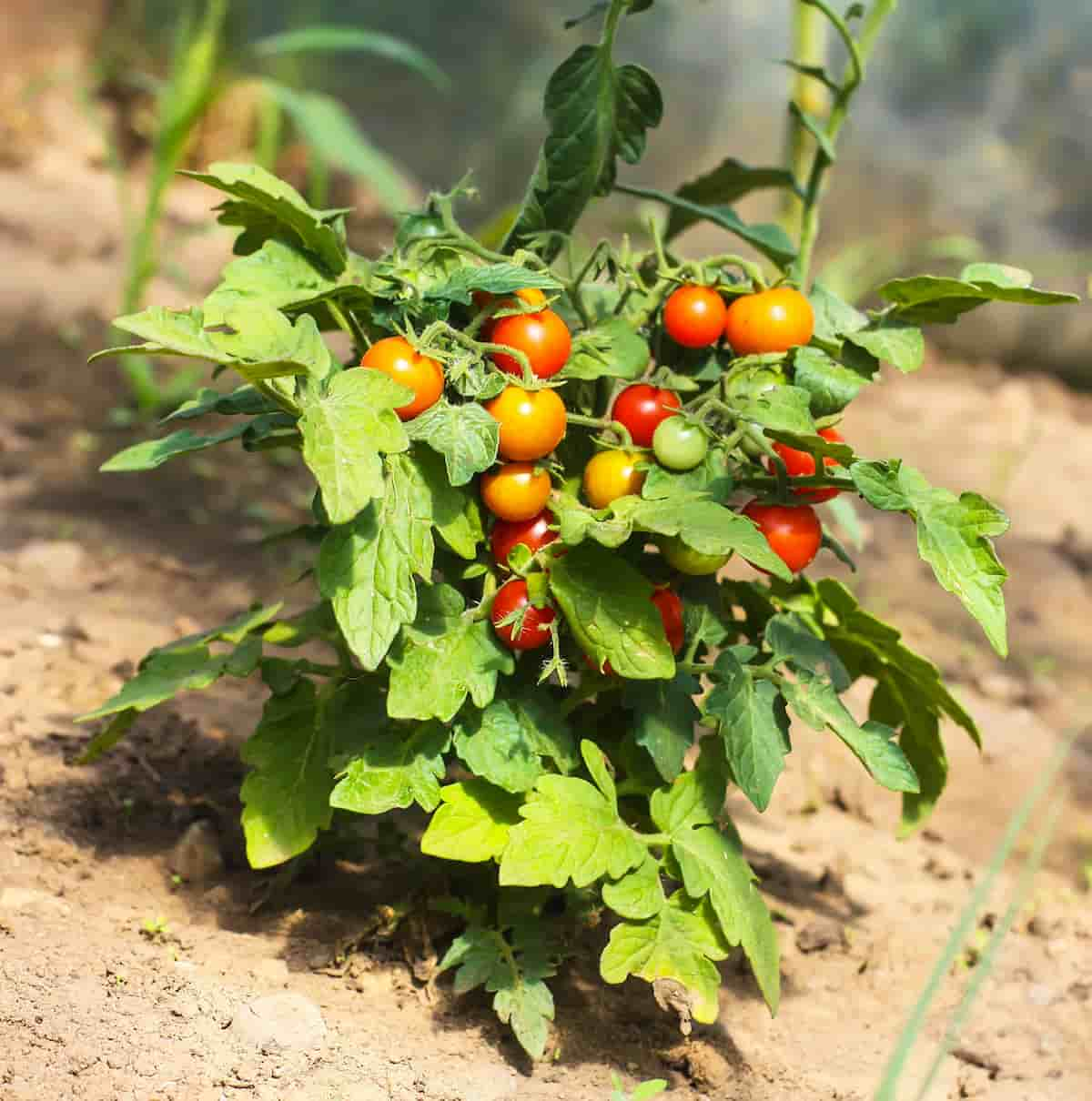Tomato farming is a significant sector in Turkey, with the country being one of the leading producers of tomatoes globally. The country has diverse regions suitable for tomato farming, with the coastal areas of the Mediterranean and Aegean regions being particularly suitable due to their warm and dry climate.

The Black Sea region also has favorable conditions, including fertile soil and a mild climate. This article will provide a more detailed analysis of tomato farming in Turkey, including the production techniques, suitable growing conditions, and the challenges farmers face.
Tomato Farming in Turkey
Suitable Growing Conditions
Tomatoes require specific conditions to grow correctly. They need warm weather and plenty of sunlight to thrive. Turkey’s diverse regions make it an ideal location for tomato farming, with the country having a variety of climates suitable for tomato production. However, the Mediterranean and Aegean coastal regions are the most suitable due to their warm and dry climate.
These regions have mild winters and hot summers, making them an ideal location for year-round production. The Black Sea region is also suitable for tomato farming, but the conditions differ. The region has a more humid and rainy climate than the coastal regions, which can pose challenges for tomato production. However, the region has fertile soil, and farmers can use the mild climate to produce high-quality tomatoes.
Production Techniques
Tomato farming in Turkey is primarily done in greenhouses. Greenhouses offer farmers more control over the growing conditions, allowing for year-round production and protection from adverse weather conditions, pests, and diseases. Farmers use various production techniques to ensure that plants receive sufficient water and nutrients.
Drip Irrigation Systems
Drip irrigation systems are widely used in Turkish tomato farming. These systems allow farmers to deliver water and nutrients directly to the plant’s roots, reducing water waste and fertilizer use. Drip irrigation systems also help prevent diseases and pests by keeping the leaves and stems dry.
Organic Fertilizers
The use of organic fertilizers is becoming more popular among Turkish tomato farmers. Organic fertilizers are natural, slow-release fertilizers that provide essential nutrients to plants without harmful chemicals. They are environmentally friendly and can improve soil quality and plant health.
Pest and Disease Management
Pests and diseases can significantly impact tomato production. Common pests in Turkish tomato farming include whiteflies, aphids, and spider mites. These pests can cause significant damage to crops, reducing yields and quality. Diseases like bacterial wilt, powdery mildew, and tomato mosaic virus can also affect the crop. Farmers use pest and disease management strategies to prevent and control these problems.
These strategies include using natural predators, crop rotation, and proper sanitation practices. Insects like ladybirds and lacewings are effective natural predators that could be brought into a greenhouse to help manage pest populations. In order to minimise the development of pests and diseases, crop rotation entails growing different crops in the same region throughout successive seasons. Sanitation practices involve cleaning the greenhouse and removing infected or dead plants.
In case you missed it: How to Increase Female Flowers in Tomato: Explained in 10 Simple Steps

Challenges Faced by Farmers
Climate Change
Climate change poses a significant challenge to tomato farming in Turkey. Changing climate patterns can cause lower yields and poor-quality fruit. Droughts and floods are two examples of extreme weather phenomena that may ruin harvests. Farmers must adapt to these changes by using more efficient irrigation systems and implementing crop management practices that can help mitigate the impacts of climate change.
Pests and Diseases
Pests and diseases are also significant challenges faced by Turkish tomato farmers. Common pests in Turkish tomato farming include whiteflies, aphids, and spider mites, while diseases like bacterial wilt, powdery mildew, and tomato mosaic virus can also affect the crop. Farmers must implement pest and disease management strategies to prevent and control these problems.
Market Competition
The global tomato market is highly competitive, and Turkish tomato farmers face stiff competition from other producers. To remain profitable, farmers must produce high-quality tomatoes at a competitive price. This means they must improve their production techniques, develop new and innovative products, and expand their export markets.
To remain competitive, Turkish tomato farmers adopt sustainable farming practices. Sustainable farming practices are environmentally friendly and promote the long-term health of the soil and ecosystem. These practices include crop rotation, organic fertilizers, and natural pest control. Farmers can produce high-quality tomatoes by adopting these practices while reducing their environmental impact and production costs.
Another strategy is to focus on developing new and innovative tomato products. The global demand for healthy and convenient food products is increasing. Turkish tomato farmers can exploit this trend by developing new products such as tomato paste, sauce, and juice. These products have a longer shelf life and can be exported to international markets, increasing the farmers’ profitability.
Export Market
The Turkish tomato industry is heavily reliant on exports. The country exports tomatoes to various countries, including Russia, Iraq, and Germany. However, the tomato industry has faced challenges in the export market in recent years. For instance, in 2015, Russia banned the import of Turkish tomatoes due to political tensions between the two countries. This ban significantly impacted Turkish tomato farmers, who were heavily reliant on the Russian market.
The Turkish government has been working on expanding the country’s export markets to address these challenges. The government has been negotiating with new markets, including China, India, and Japan, to increase the country’s export volumes. In addition, the government has been making investments in the country’s infrastructure and logistical systems to make it easier to export tomatoes. These investments will make it simpler for farmers to move their goods to worldwide markets by facilitating the building of new ports, roadways, and rail networks.
In case you missed it: Frequently Asked Questions About Tomato Farming

Conclusion
Tomato farming is an essential sector in Turkey, providing food and employment for thousands of people. The country has diverse regions suitable for tomato production, with the coastal regions of the Mediterranean and Aegean regions being particularly suitable due to their warm and dry climate. The Black Sea region also has favorable conditions, including fertile soil and a mild climate. To remain competitive, farmers must adopt sustainable farming practices, focus on developing new and innovative tomato products, and expand their export markets.
- Feed Your Flock for Less: Top 10 Tips to Save on Chicken Feed
- Ultimate Guide to Ossabaw Island Hog: Breeding, Raising, Diet, and Care
- Hatching Answers: The Top 10 Reasons Your Chickens Aren’t Laying Eggs
- Eggs and Economics: Breaking Down the Cost of Raising Backyard Chickens
- Defend Your Greens: Proven Methods to Keep Iguanas Out of Your Garden
- Ultimate Guide to Cinnamon Queen Chicken: A Comprehensive Guide for Beginners
- Ultimate Guide to California Tan Chicken: Breeding, Raising, Diet, Egg-Production and Care
- Ultimate Guide to Marsh Daisy Chicken: Breeding, Raising, Diet, and Care
- 10 Types of Chicken Farming Businesses You Can Start for Profits